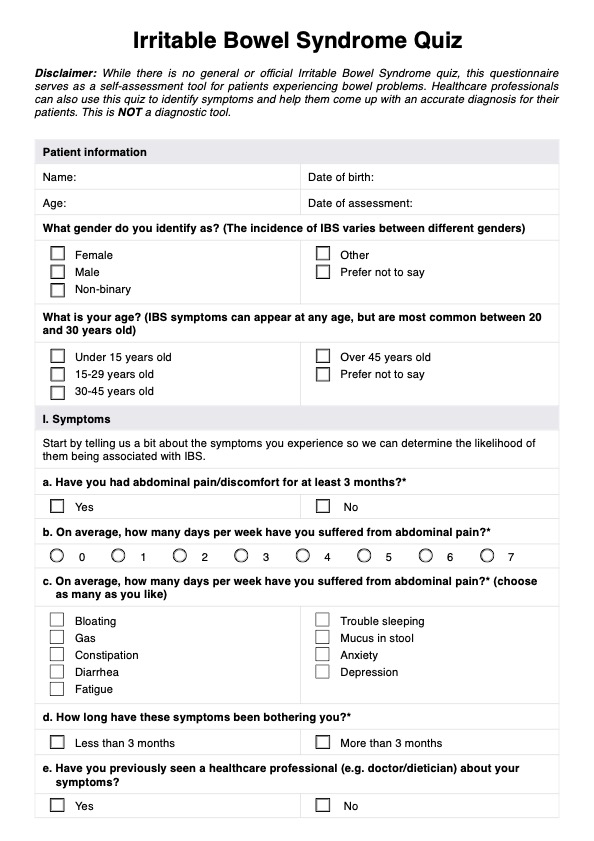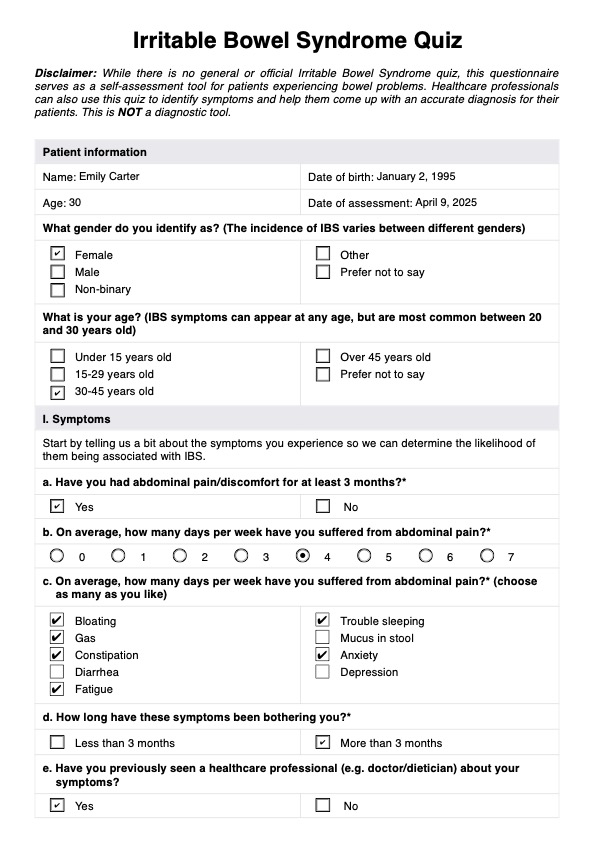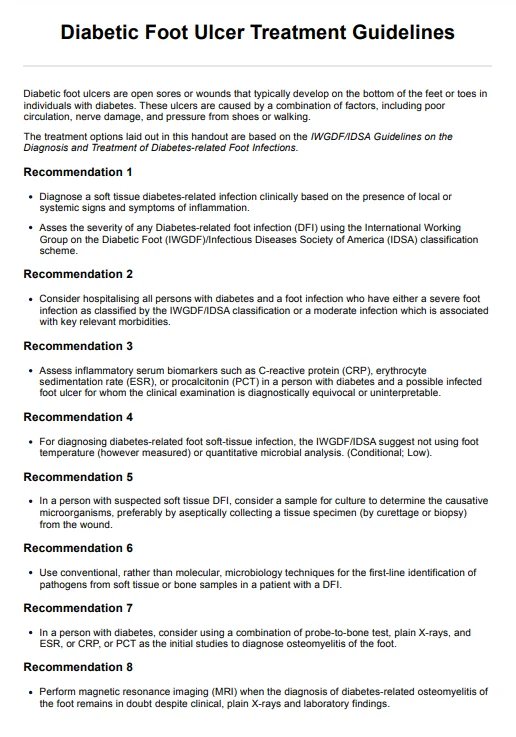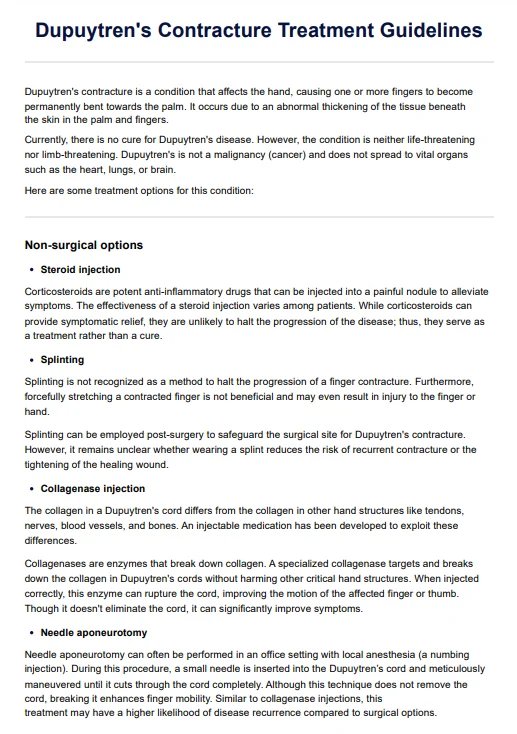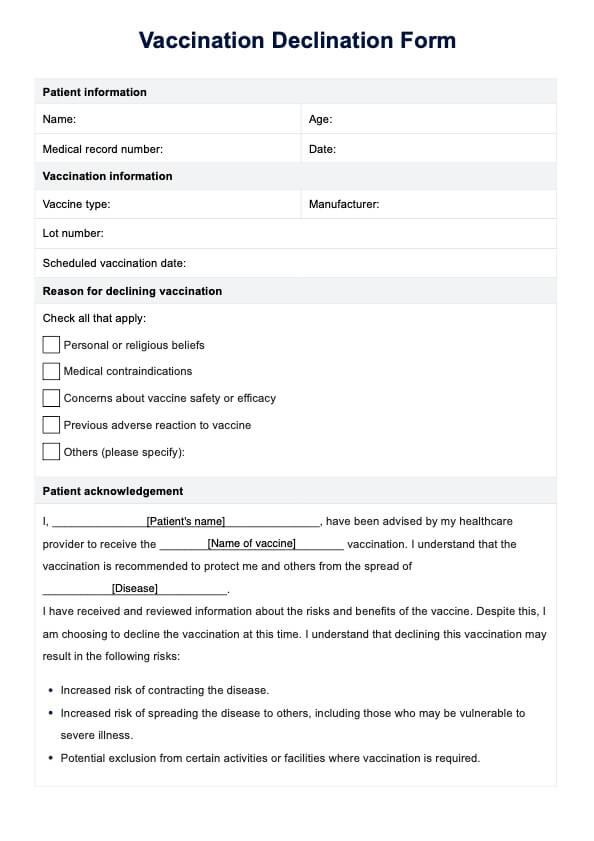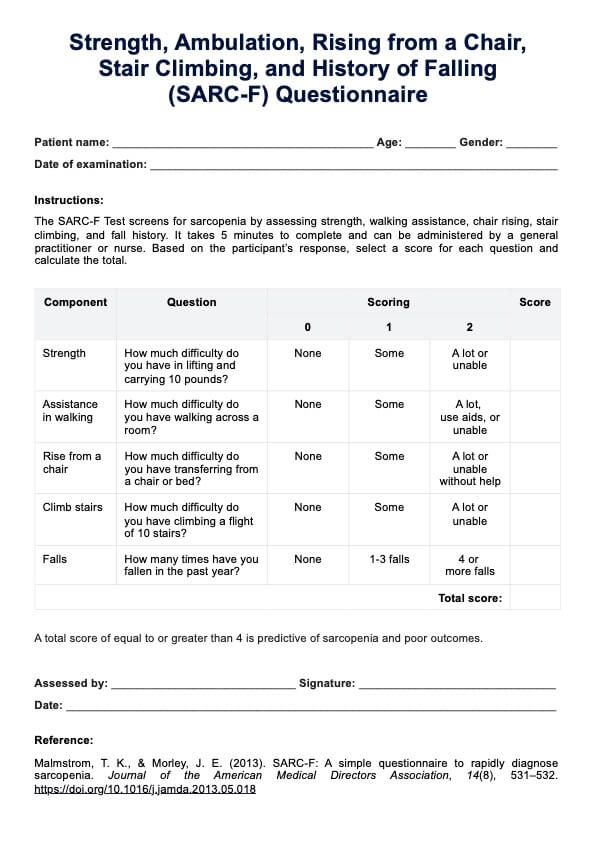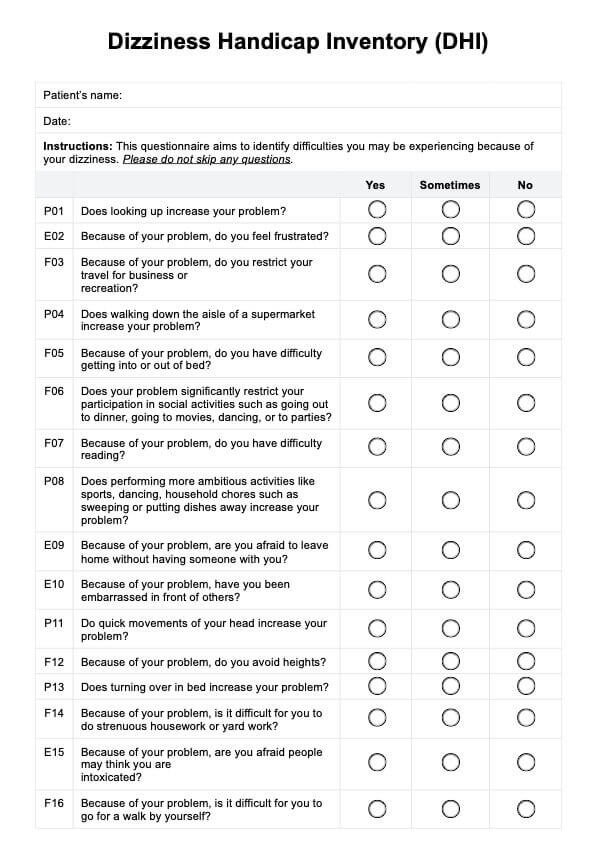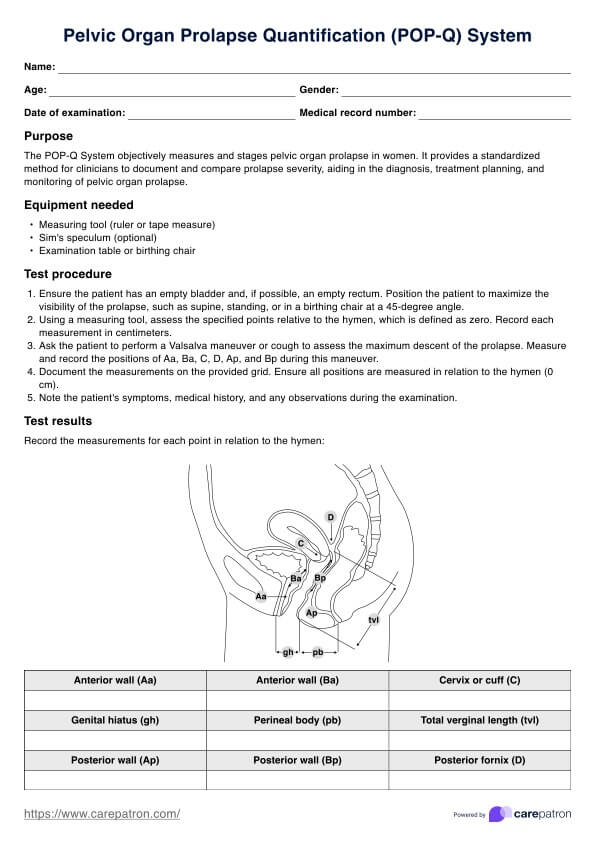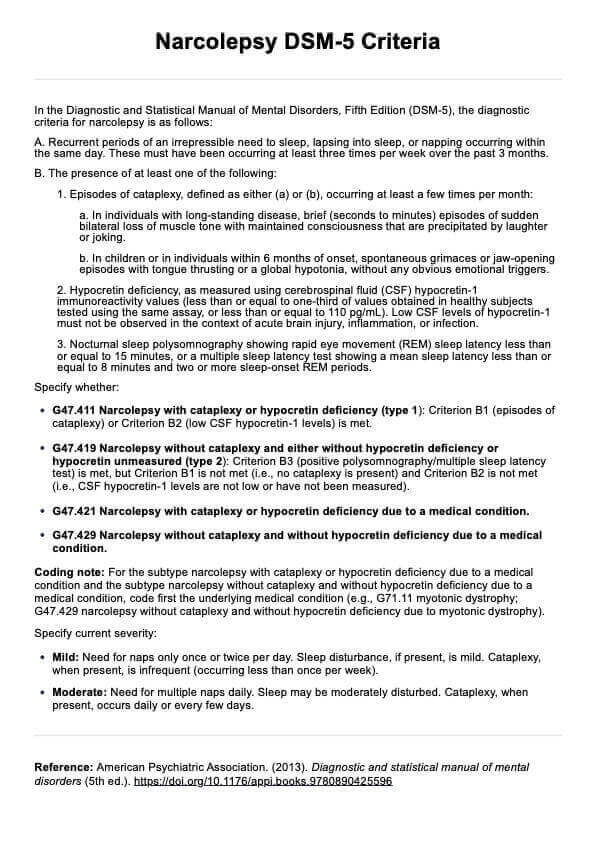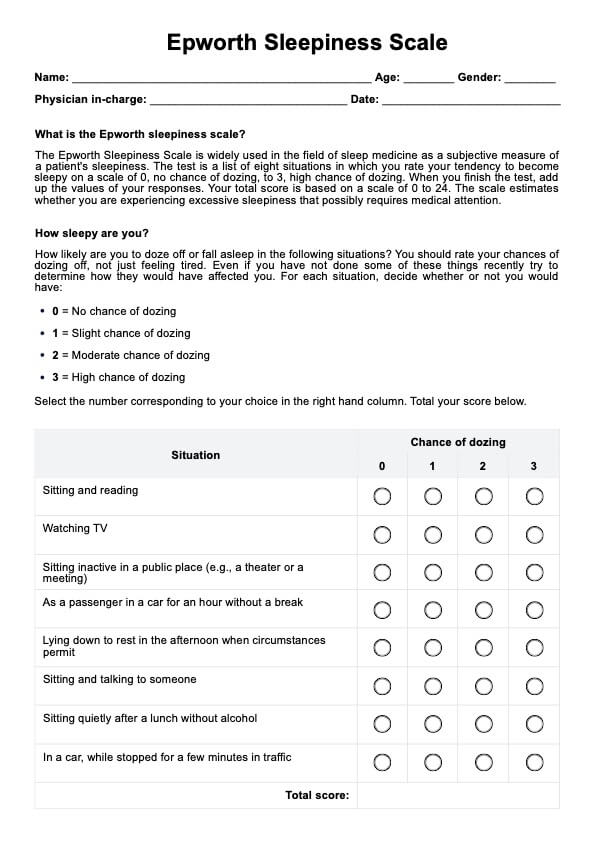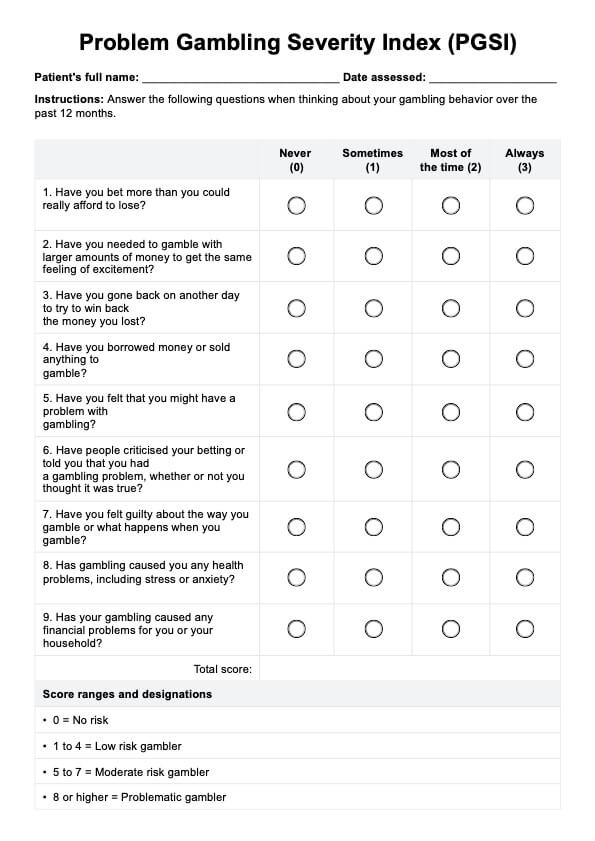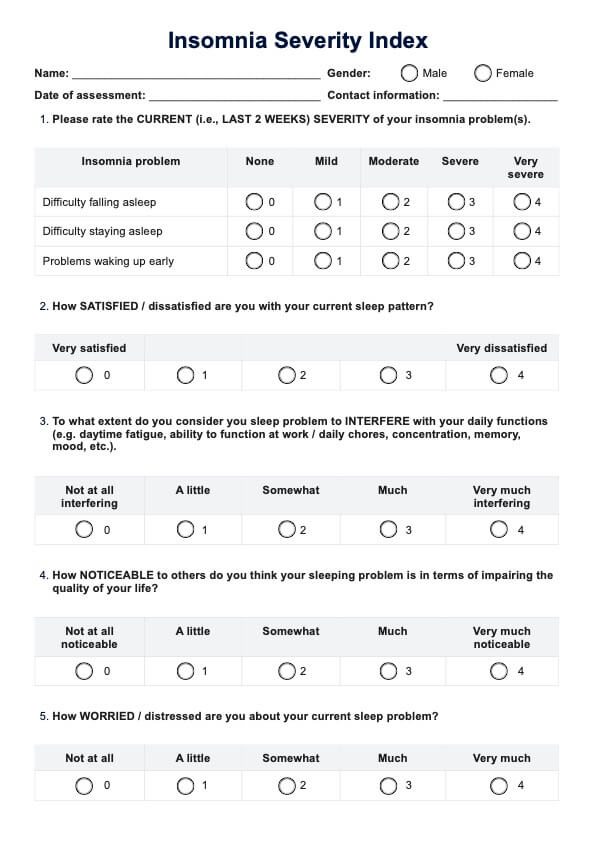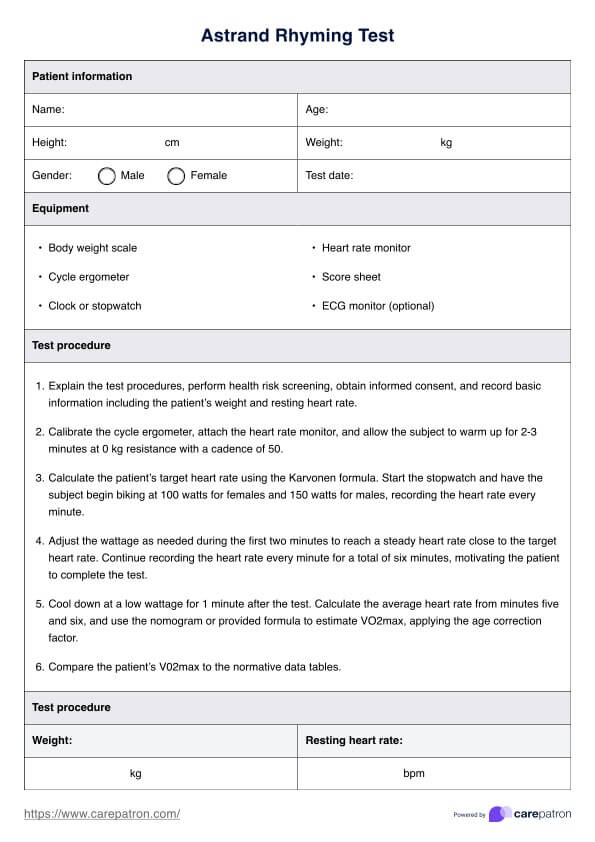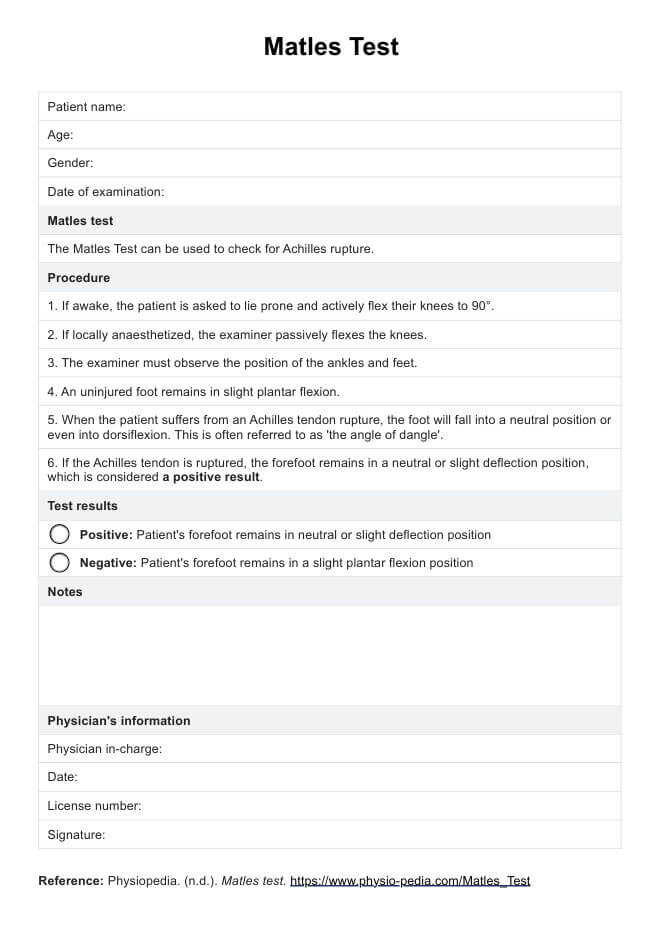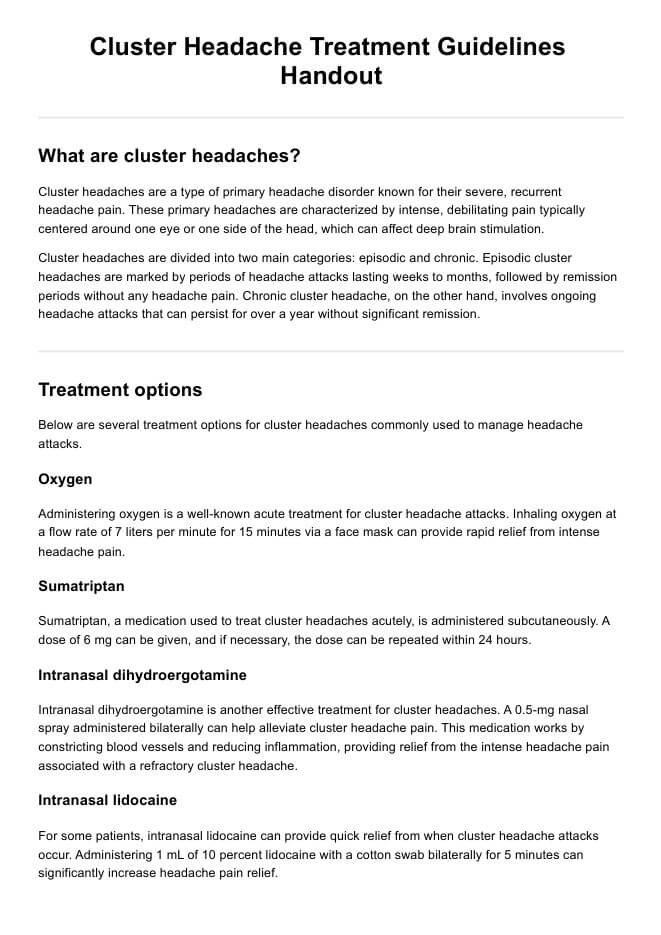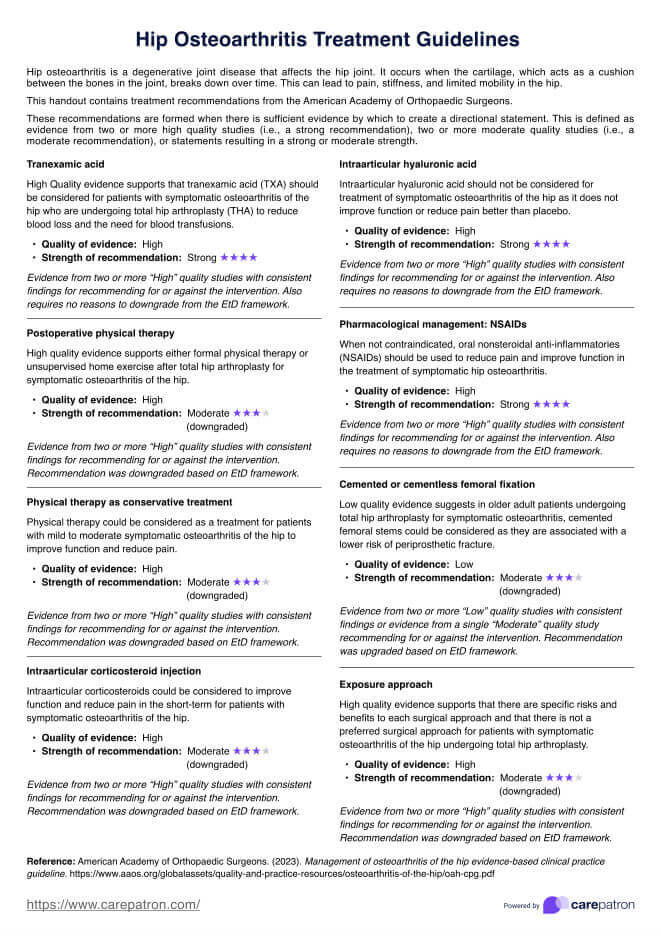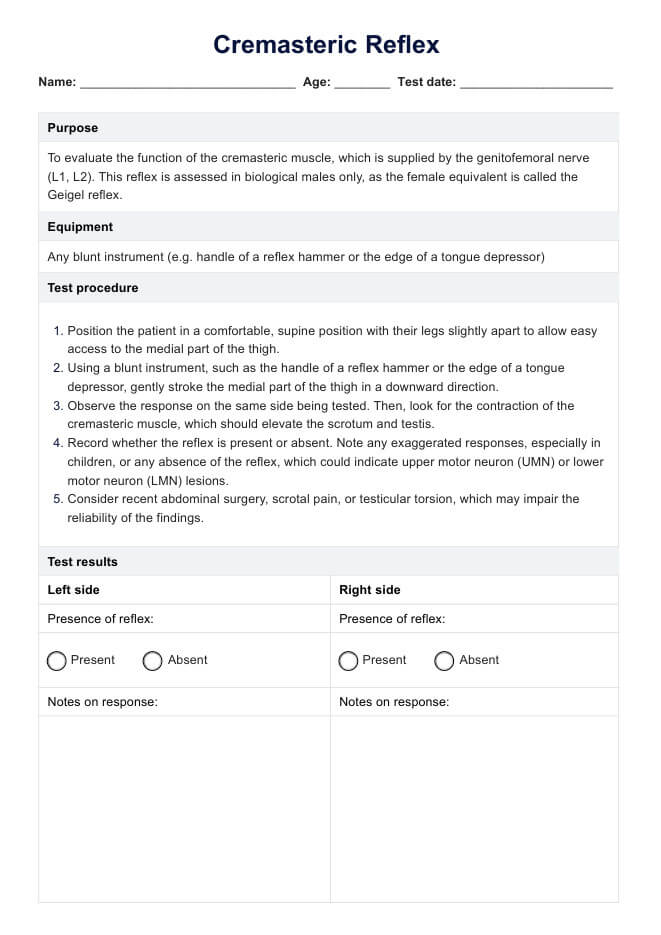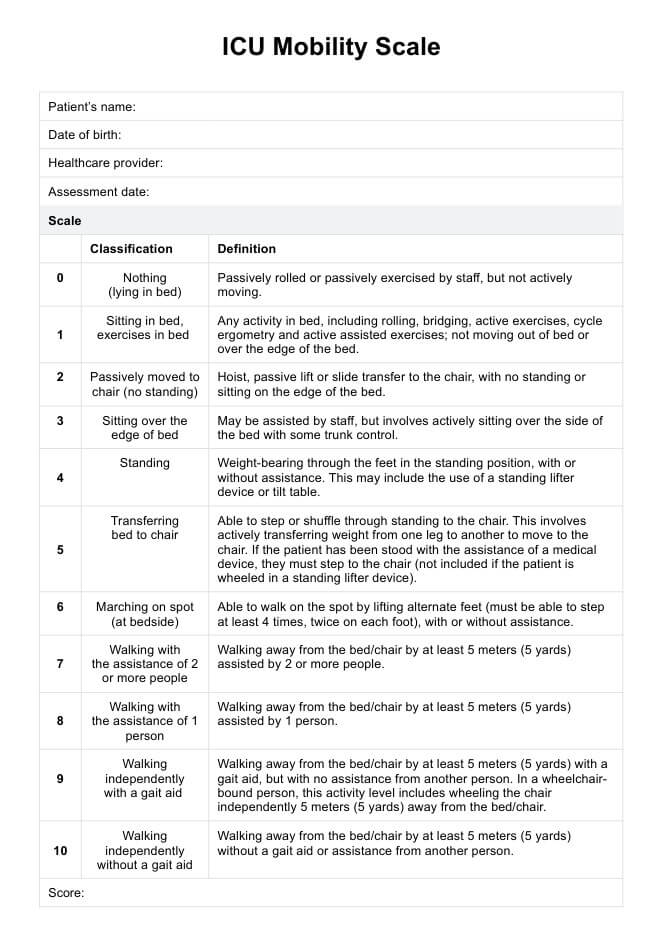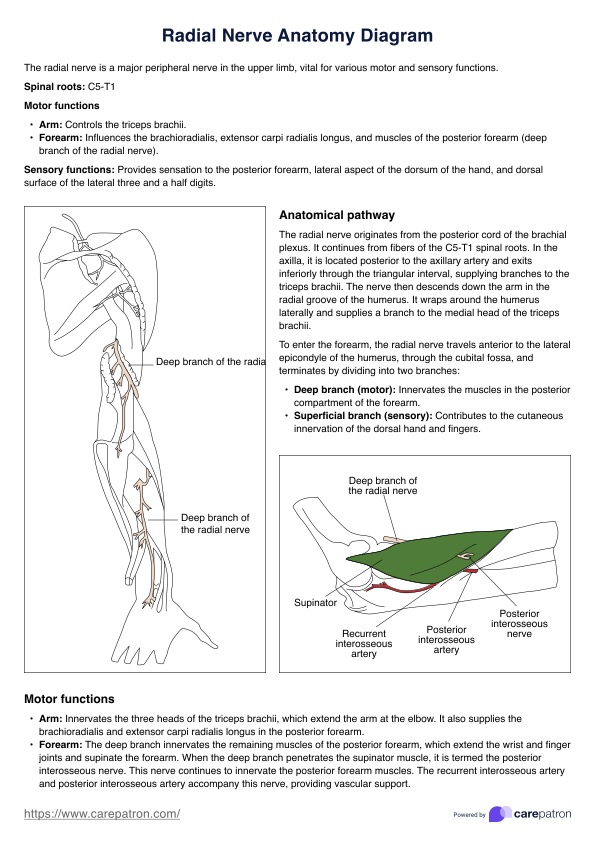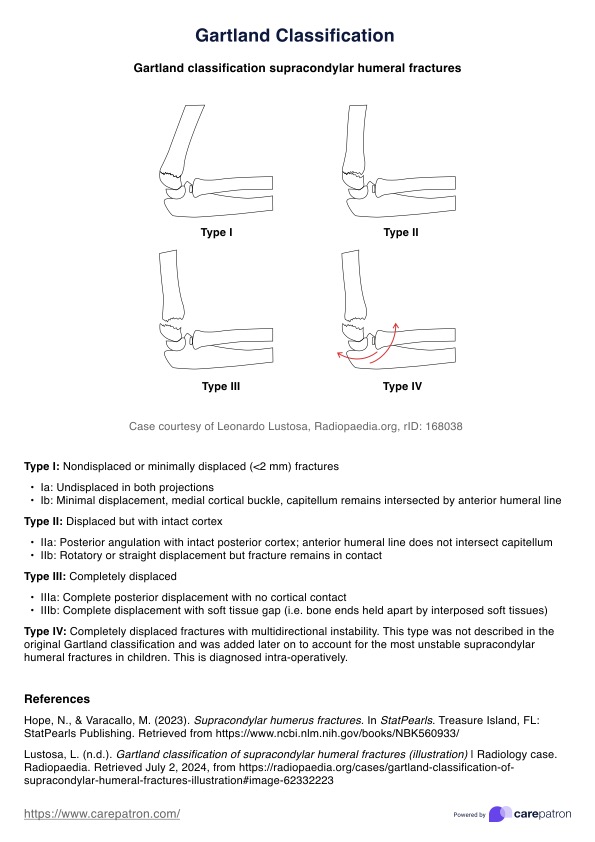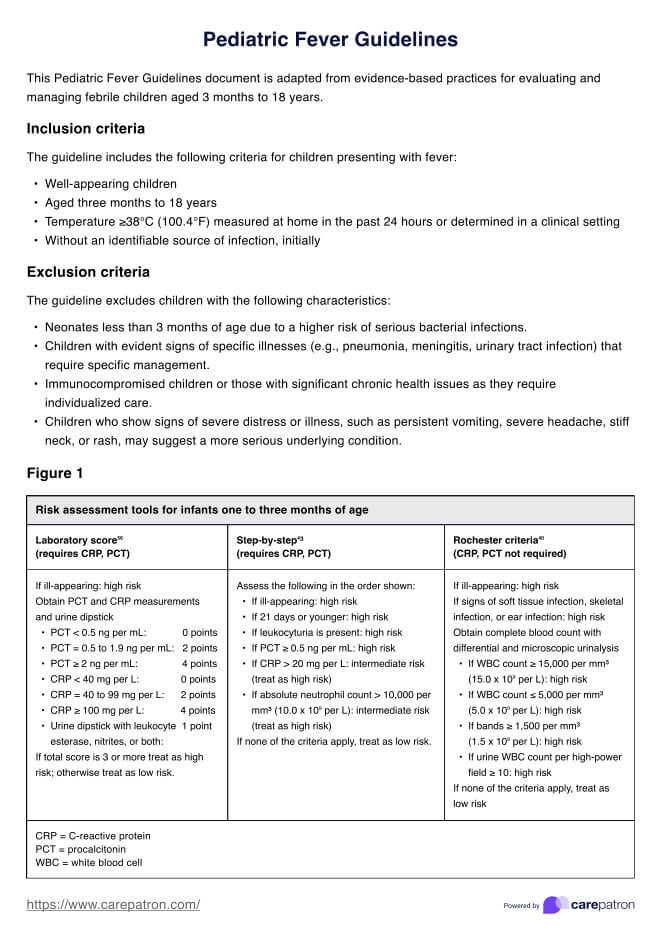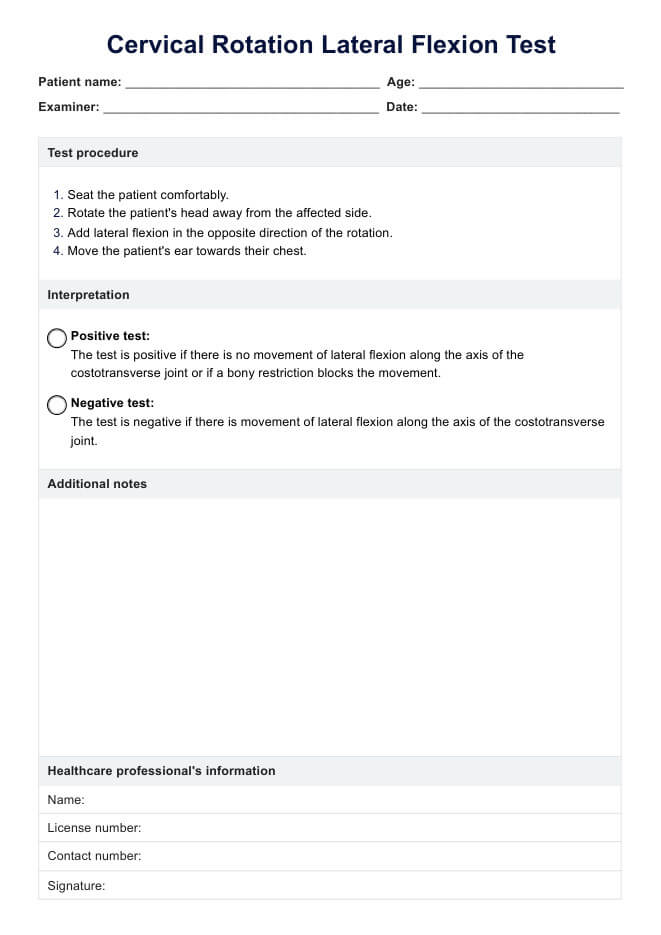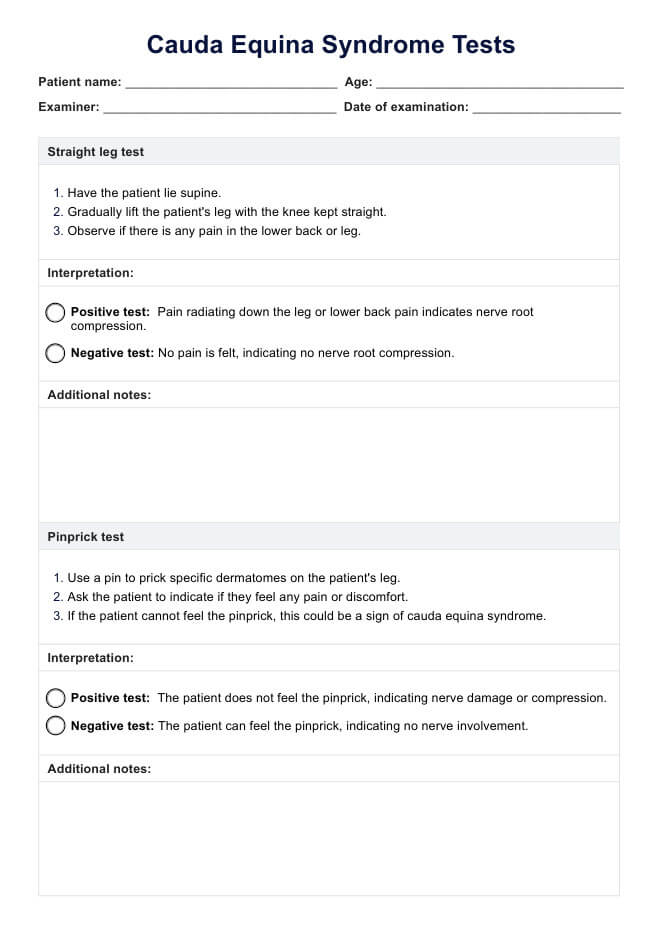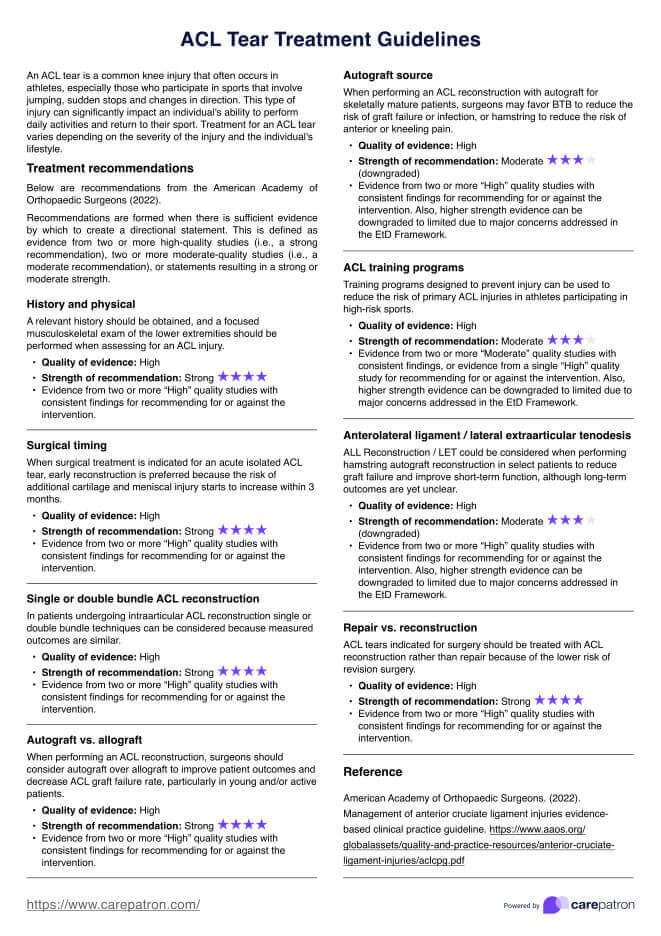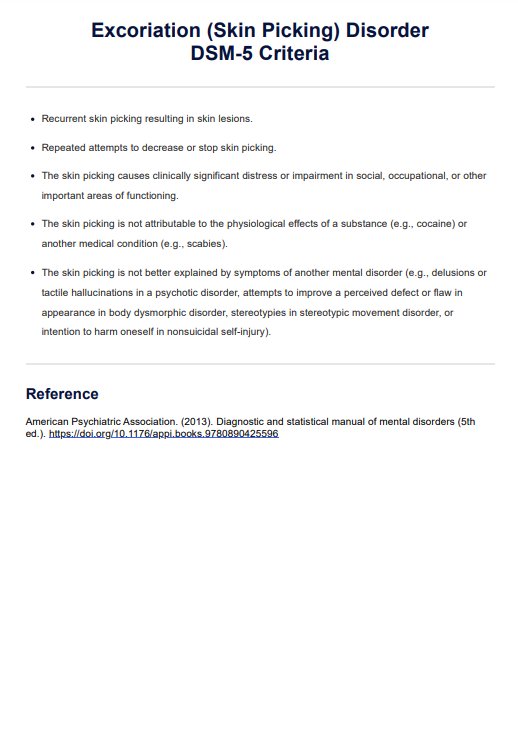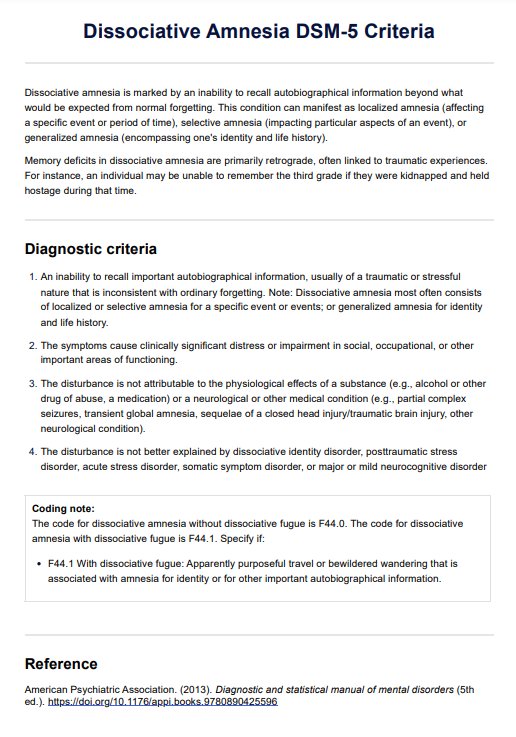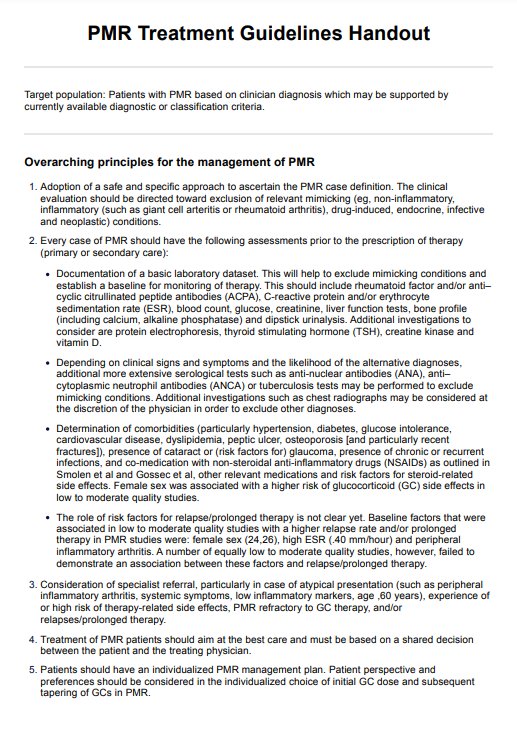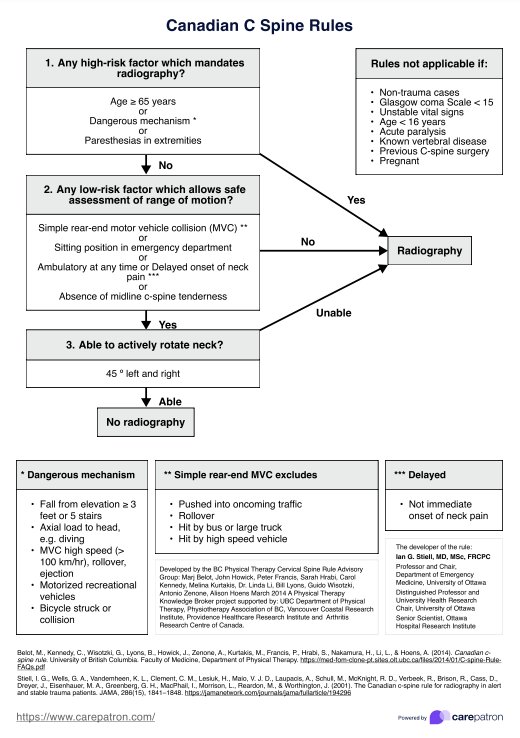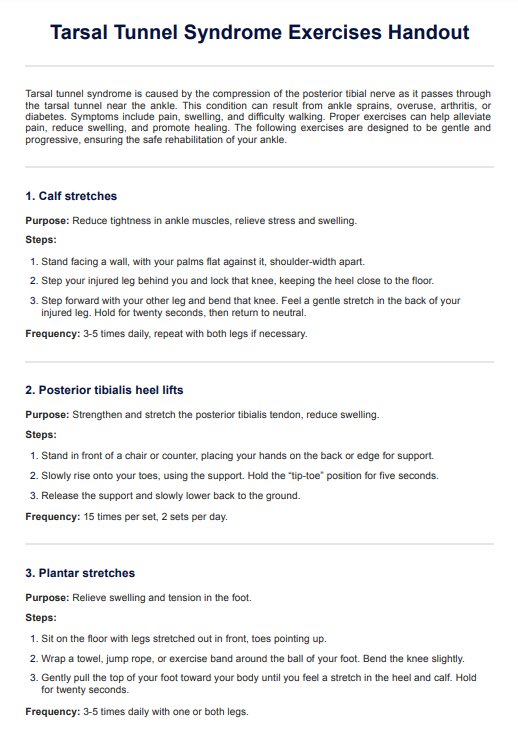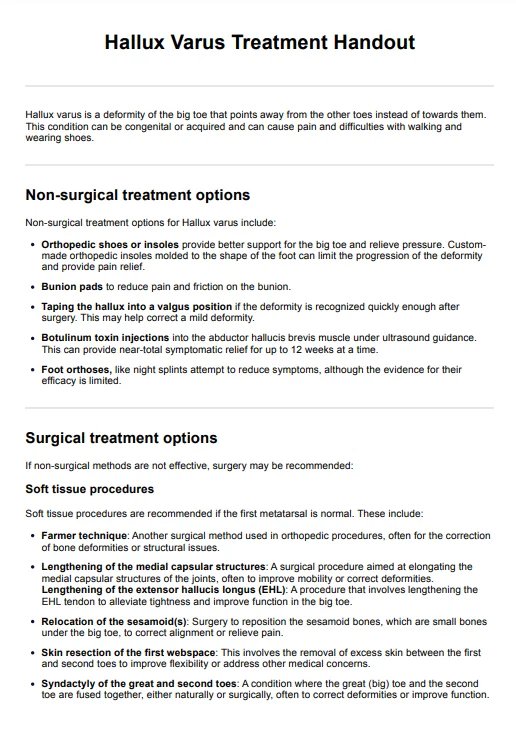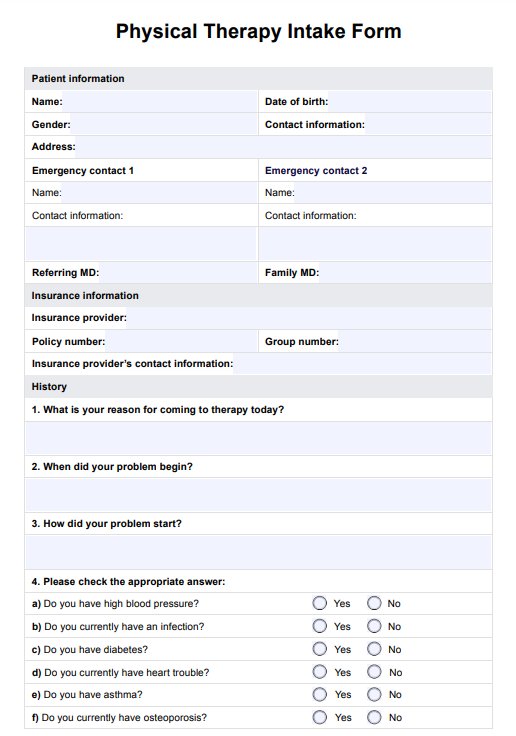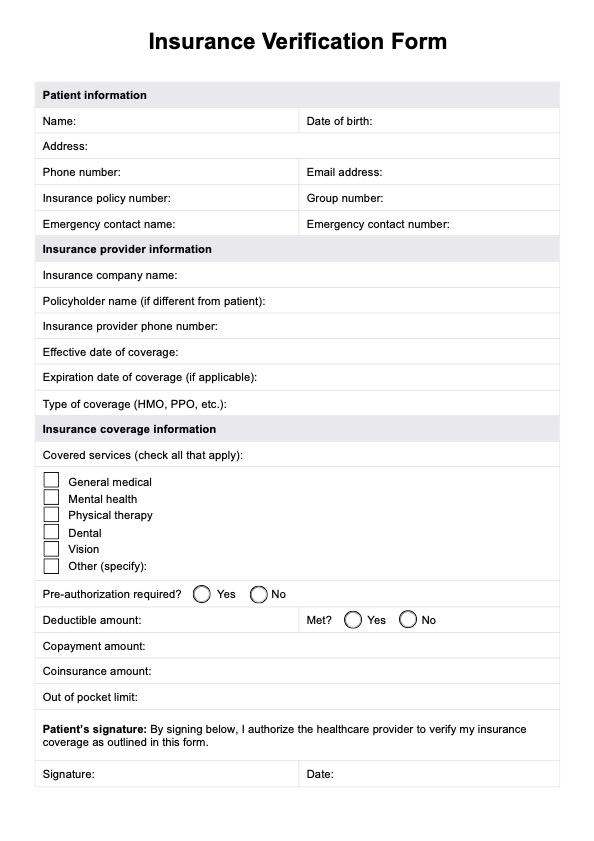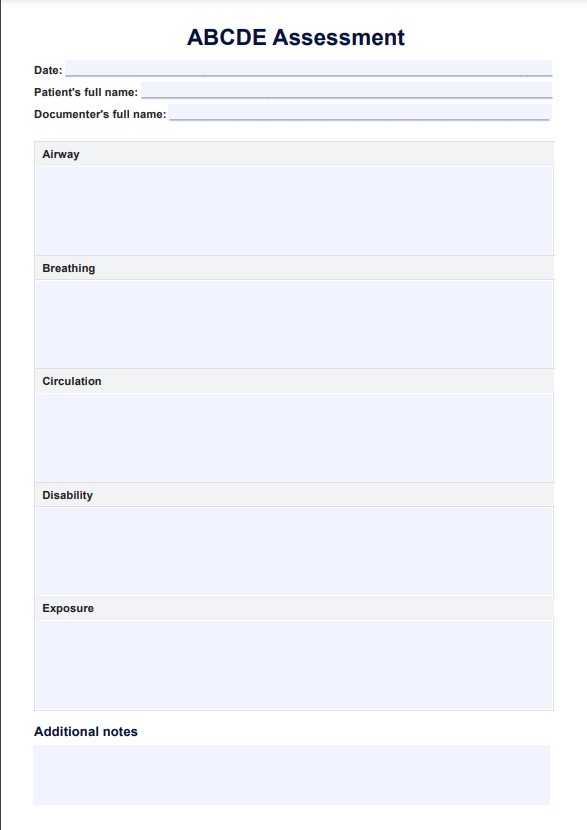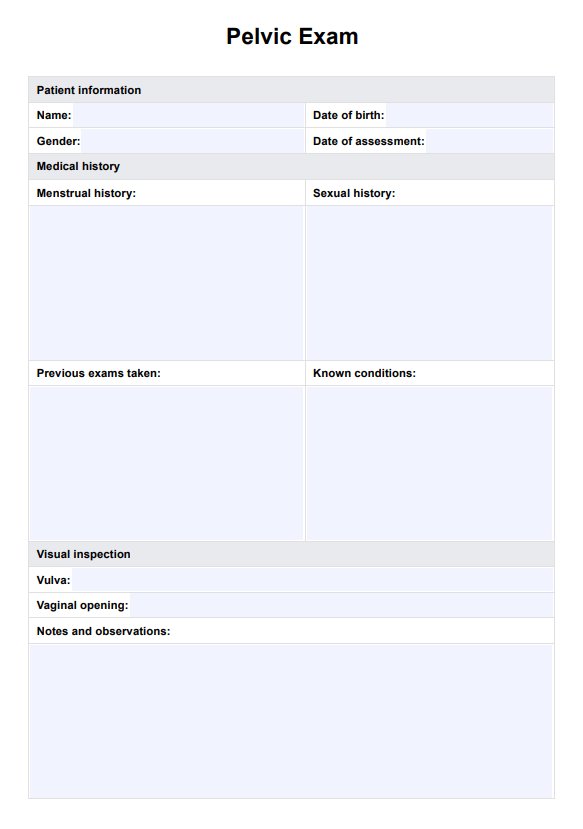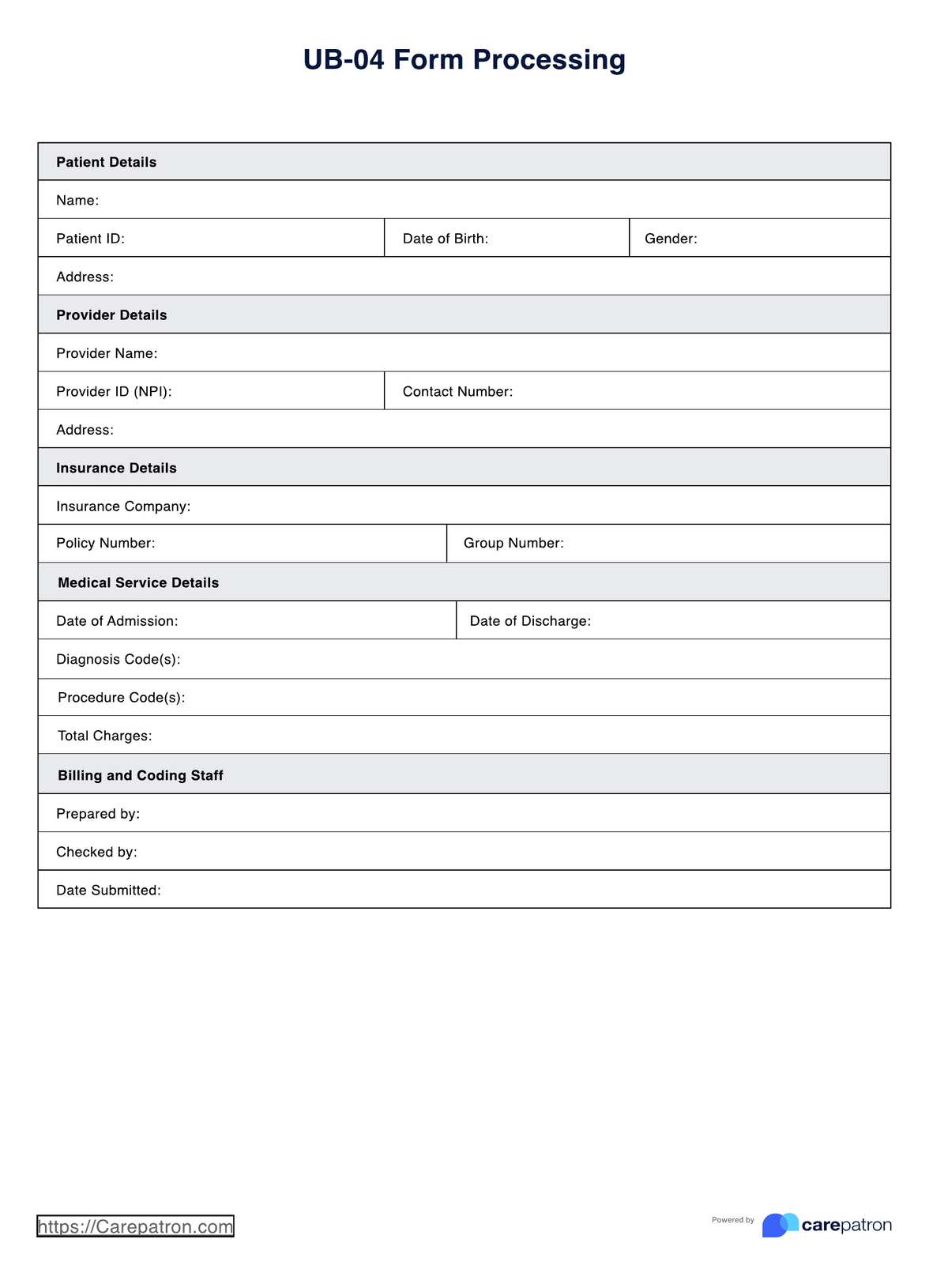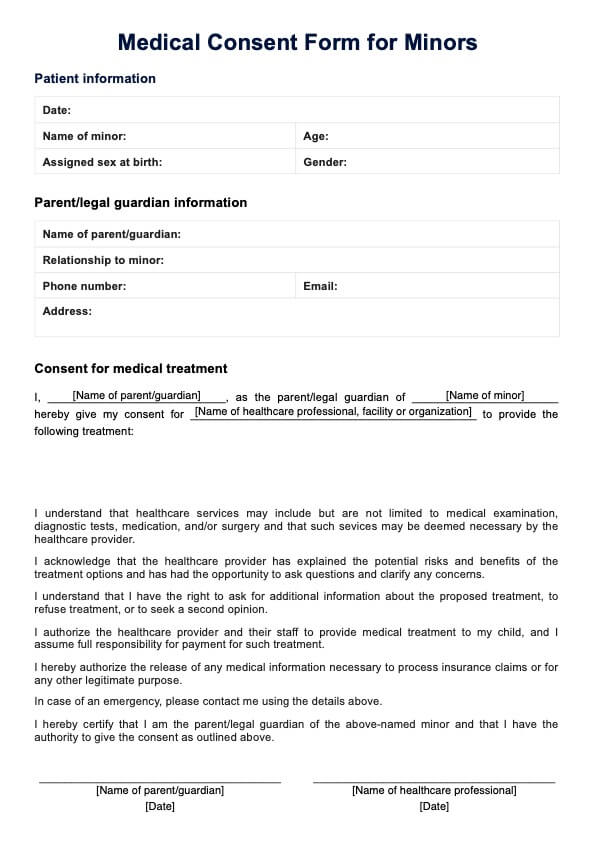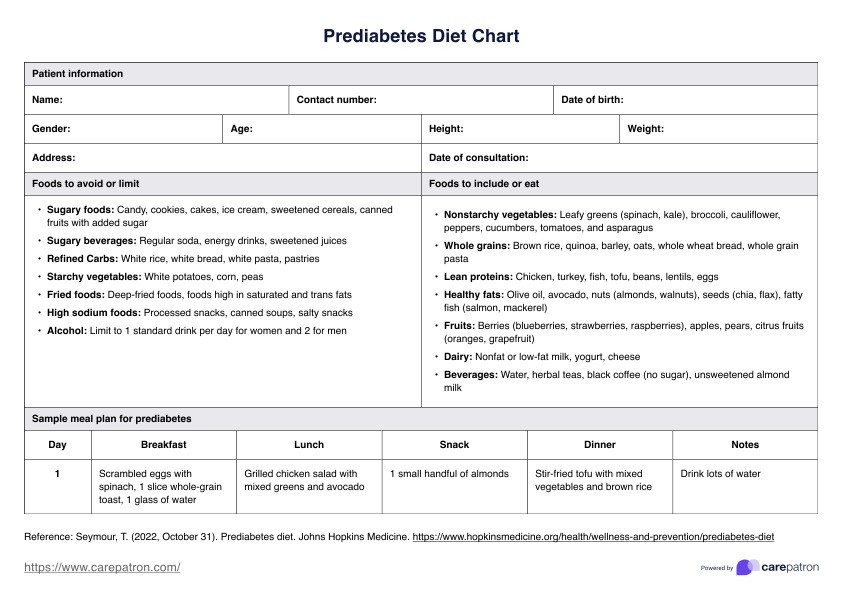Irritable Bowel Syndrome Quiz
Download Carepatron's free Irritable Bowel Syndrome Quiz to assess knowledge of IBS symptoms, treatment, and management. Ideal for education and clinical use.


What is irritable bowel syndrome (IBS)?
Irritable bowel syndrome (IBS) is a chronic functional gastrointestinal disorder that significantly impacts digestive health (Patel & Shackelford, 2022). It is primarily characterized by recurring abdominal pain associated with changes in bowel habits, including diarrhea, constipation, or both. Unlike inflammatory bowel disease, IBS does not cause visible inflammation or damage in the digestive tract, making it a condition diagnosed based on symptom patterns and exclusion of other disorders.
Healthcare providers often rely on established diagnostic criteria and clinical judgment to diagnose IBS. Because symptoms can vary widely between individuals, recognizing unique symptoms is essential for forming a definitive diagnosis and personalized treatment plan.
Causes of IBS
The exact cause of irritable bowel syndrome (IBS) remains unclear, but current research suggests it results from a complex interplay of biological and environmental factors (Healthdirect Australia, 2018). One leading theory involves abnormalities in gut motility, where irregular intestinal contractions lead to diarrhea or constipation. Another factor is heightened nerve sensitivity in the gut, causing disproportionate pain from normal digestive activity.
The brain-gut axis also plays a role, with stress and anxiety affecting communication between the brain and digestive system, often worsening symptoms. Infections, such as gastroenteritis, and changes in gut microbiota are also known contributors. Psychological factors, including early-life trauma, depression, and chronic stress, are strongly linked to IBS onset and severity.
Additionally, dietary triggers—like caffeine, fatty foods, and dairy products—can provoke symptoms in sensitive individuals. Understanding these multifactorial causes is vital for any healthcare professional aiming to diagnose IBS and guide effective treatment tailored to each patient’s experience.
Symptoms of IBS
Symptoms of irritable bowel syndrome IBS can vary from person to person but typically center around persistent abdominal pain or cramping linked to bowel movements (Healthdirect Australia, 2018). Patients may report relief after passing stool or notice a worsening of discomfort when constipated or during episodes of diarrhea. These shifts in bowel habits are hallmark indicators and may fluctuate over time. Additional symptoms often include bloating, excessive gas, and a sensation of incomplete evacuation.
Some individuals experience mucus in their stool or have an urgency to use the bathroom, especially after eating. Fatigue, sleep disturbances, anxiety, and depression are also common, underscoring the systemic and emotional impact of IBS. Since these symptoms overlap with other digestive disorders, healthcare providers must use a thorough medical diagnosis process—including Rome IV diagnostic criteria and ruling out inflammatory bowel disease (The Rome Foundation, 2021)—to achieve a definitive diagnosis. Recognizing these unique symptoms allows clinicians to accurately assess the severity and tailor care for long-term symptom management.
IBS treatment options
Treating irritable bowel syndrome IBS involves a personalized approach focused on managing symptoms and improving overall quality of life. One of the primary strategies includes dietary changes, such as adopting a low FODMAP diet, increasing fiber intake, or eliminating trigger foods like dairy products and carbonated drinks (NHS Choices, 2019).
Patients often benefit from working with a healthcare professional or dietitian to identify specific food-related triggers. Lifestyle interventions—such as regular exercise, adequate sleep, and stress reduction through cognitive behavioral therapy—can also play a significant role.
When symptoms are persistent, prescription medication may be necessary. This can include antispasmodics to relieve abdominal pain, laxatives for constipation, or antidiarrheal drugs. Some patients respond well to antidepressants or gut-specific antibiotics like rifaximin. Probiotics and supplements are additional options to support digestive health. Because IBS symptoms are chronic and can vary in intensity, a collaborative and flexible treatment plan is essential for long-term relief and improved patient outcomes.
Irritable Bowel Syndrome Quiz Template
Irritable Bowel Syndrome Quiz Example
What is an Irritable Bowel Syndrome Quiz?
The Irritable Bowel Syndrome Quiz is a structured questionnaire designed to help healthcare professionals assess whether a patient’s symptoms align with common indicators of IBS. While it is not a diagnostic tool on its own, the quiz serves as a symptom-based screening resource that captures essential patient information, including abdominal pain frequency, bowel habits, dietary triggers, emotional stressors, and lifestyle impacts. It also explores symptom duration and prior medical consultations to support clinical decision-making.
The quiz includes sections for both patient self-reporting and professional evaluation, helping providers gather consistent information that supports further investigation using established diagnostic criteria. This tool is useful in identifying patterns that may warrant a formal medical diagnosis of IBS, aiding the clinician in determining if additional testing or referrals are needed. It helps streamline the diagnostic process and provides a foundational overview before arriving at a definitive diagnosis through comprehensive clinical evaluation.
How does it work?
Carepatron’s Irritable Bowel Syndrome Quiz is designed to integrate seamlessly into your clinical workflow. It helps you gather structured data, assess symptoms effectively, and guide conversations around diagnosis and management—all within a few simple steps.
Step 1: Access the quiz template
Click the “Use template” button on this page to instantly access the Irritable Bowel Syndrome Quiz via the Carepatron app. You’ll be prompted to download or open the app, where the quiz is ready to use—no extra setup required.
Step 2: Introduce the quiz to patient
Briefly explain that the quiz is a guided symptom assessment tool to better understand their digestive health concerns. Emphasize that it’s not a diagnostic test but will help support a more accurate evaluation of their bowel habits, triggers, and overall impact on quality of life.
Step 3: Conduct the quiz
Walk the patient through each section, or allow them to complete it independently based on your clinical preference. Ensure they understand each question, especially those related to abdominal pain, constipation, diarrhea, and unique symptoms, to capture accurate responses.
Step 4: Gather and interpret findings
Review the patient’s answers to identify symptom patterns and potential IBS indicators. Use the data to determine if the presentation aligns with IBS diagnostic criteria or if additional testing is needed to rule out conditions like inflammatory bowel disease.
Step 5: Provide patient education and next steps
Based on your interpretation, explain the results clearly and offer guidance on lifestyle changes, dietary adjustments, or prescription medication if necessary. If the quiz points toward IBS, discuss treatment options or refer for further evaluation to confirm a definitive diagnosis.
Benefits of using this quiz
The IBS quiz can significantly streamline the diagnostic process for physicians working with patients who report chronic digestive discomfort. It allows doctors to quickly gather structured information about symptoms like stomach pain, bloating, constipation, and diarrhea—helping differentiate IBS from other gastrointestinal conditions. For most people suffering from IBS, symptoms may be triggered by food, stress, or alcohol, and they often feel depressed or anxious about their condition.
The quiz helps capture these factors clearly during the consult. It’s particularly helpful in identifying patterns that patients may not openly communicate during a standard appointment. The structured format ensures consistency in data collection and supports efficient charting and decision-making.
Additionally, the IBS quiz can guide conversations around the next steps, allowing the physician to provide targeted patient education, recommend lifestyle changes, or initiate treatment. By presenting key findings in a simple format, this tool supports healthcare professionals in finding ways to improve care and determine if a follow-up contact or referral is necessary.
References
Healthdirect Australia. (2018). Irritable bowel syndrome (IBS). https://www.healthdirect.gov.au/irritable-bowel-syndrome-ibs
NHS Choices. (2019). Diet, lifestyle, and medicines – Irritable bowel syndrome (IBS). NHS. https://www.nhs.uk/conditions/irritable-bowel-syndrome-ibs/diet-lifestyle-and-medicines/
Patel, N., & Shackelford, K. (2022, October 30). Irritable Bowel Syndrome. PubMed; StatPearls Publishing. https://www.ncbi.nlm.nih.gov/books/NBK534810/
The Rome Foundation. (2021, January 16). Rome IV criteria. Rome Foundation. https://theromefoundation.org/rome-iv/rome-iv-criteria/
Commonly asked questions
Stress is considered the number one trigger for IBS, as it disrupts the brain-gut connection and worsens symptoms. Emotional distress can lead to increased stomach pain, bloating, and changes in bowel habits.
Conditions like inflammatory bowel disease (IBD), celiac disease, and colon cancer can present with similar symptoms and may be mistaken for IBS. Accurate diagnosis requires ruling out these conditions through proper testing and clinical evaluation.
A healthcare professional confirms IBS using symptom-based diagnostic criteria like the Rome IV while excluding other conditions through medical history, physical exams, and relevant tests. There is no single test to diagnose IBS definitively.
Common symptoms of IBS include abdominal pain, bloating, constipation, diarrhea, and mucus in the stool. Some individuals may also experience fatigue, anxiety, or depression alongside digestive symptoms.


